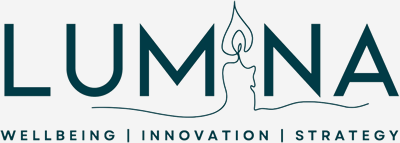I visited a friend at a school this week and was moved to write. Bare with me.
In my experience, the people who truly shape school culture aren’t always the principals. It’s often their office staff, especially the EAs, who are the unsung heroes of school life. Let’s be honest: as Executive Assistants (EAs) in a school, they are often the unseen backbone—supporting senior leaders, managing non-stop schedules, and fielding countless questions daily. In this high-stakes, high-energy environment, taking care of their own well-being can easily slip down the list. But what if we flipped the script? Let’s talk about why their well-being matters just as much as the work they do—and explore some steps to help them thrive, not just survive.
It’s More Than Just a Buzzword
EAs in schools are a unique breed. They’re not just working in an office; they’re embedded in a community with students, teachers, parents, and staff, often acting as the bridge that connects them all. Yet, research shows that EAs frequently experience isolation, burnout, and lack of recognition, especially when compared to corporate counterparts. That’s where networks like EAs in Education come in, providing a safe, collaborative space to connect, share, and truly belong. It’s about thriving, knowing they’re supported by a community that “gets it.”
In my own research, it’s clear there’s a real synergy with the EA role. Here are some practical ways to make EA well-being a priority. It’s not about big changes; it’s about small, intentional steps that make a real difference.
1. Connect with Peers
Working as an EA in a school can be isolating, but connecting with others who understand can be incredibly validating. There’s a reason EAs in Education grew from just five LinkedIn members to a national community—because EAs need each other. Finding a local or online network, attending a workshop, or simply reaching out to another EA can make a huge difference. Sharing challenges, tips, or even just a laugh can lighten the load and remind them that they’re part of a bigger community.
2. Champion Professional Growth
Because nobody else will. It’s easy to get stuck in the routine, but growth is what keeps things fresh. Whether it’s upskilling in the latest tech or mastering project management, EAs should take advantage of professional learning tailored to their unique role in education. And if it’s not offered, they can ask for it! Showing a commitment to skill development also highlights the strategic value EAs bring to their school’s leadership team.
3. Speak Up for Recognition
EAs are often the unsung heroes of a school. They don’t just handle logistics; they’re strategic partners, diplomats, and sometimes even confidants. Advocating for their role doesn’t have to feel uncomfortable. Sharing the impact of their work in ways that align with school goals helps others understand just how vital they are to the team and can go a long way in boosting motivation and well-being.
4. Embrace Flexibility (Where Possible)
Flexibility is a game-changer for well-being. If their school offers options like flexible hours or remote work, even occasionally, it can help EAs balance personal commitments with professional ones. While schools may not offer the same flexibility as corporate settings, every bit helps in managing stress and creating a healthier work-life balance.
5. Explore Mindfulness and Movement
Mindfulness might sound like a trendy buzzword, but there’s solid evidence it works. Short breaks to reset and recenter can do wonders for focus and stress levels. Whether it’s a quick walk around campus, a deep-breathing exercise, or a five-minute meditation app, these small pauses can help recharge, especially during high-stress term times.
6. Lean Into the Mission
Many EAs in schools are driven by a sense of purpose, finding fulfilment in knowing their work impacts students and supports an educational mission. When challenges arise, reconnecting with this purpose can remind them why they’re doing this work in the first place.
Take a Moment..
Here are some questions you can ask as an EA? Am I investing in my circle of influence? Are there areas where I could be more intentional with my well-being?
So, Here’s the Takeaway
EAs deserve a workplace where their well-being is prioritised, where their role is valued, and where their voices are part of the conversation. Taking these small steps toward better well-being isn’t just self-care; it’s about empowering them to bring their best to a role that deserves their energy, skill, and dedication.
Hi, I’m Andrew Murray, and I’m excited to partner with you in 2025! Let’s connect – message me here to start the conversation. Have a fantastic week, and remember to be a light for yourself and those around you!
